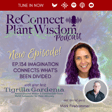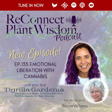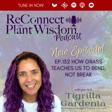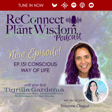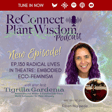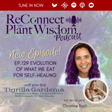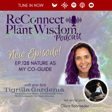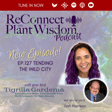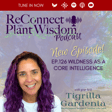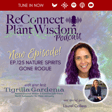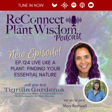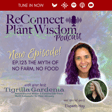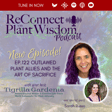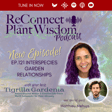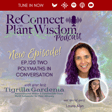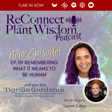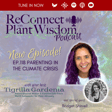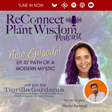
Ep.110 Evolving Wild with Eric Inman
I laughed a lot in this one—not because it was funny, but because there’s something deeply disarming about talking with someone like Eric Inman. In this episode, we explore what it really means to be in communion with nature—specifically with rivers—and how reawakening our wild selves can shift everything.
This is an episode about feeling your way into truth, remembering you are nature, and learning to dance with the wild rather than dominate it. Whether you’ve been craving deeper integration after a breakthrough or you’re just starting to question the disconnected world you live in, this one’s for you.
Topics Covered about Ecopsychology and plant medicine
➡️ Explore psilocybin therapy in nature as a powerful tool for reconnecting to your soul and rewilding your nervous system
➡️ Understand river consciousness and how water can serve as a guide for emotional regulation and intuitive decision-making
➡️ Break free from ego-based survival patterns by embodying your authentic self in communion with Nature
➡️ Learn why community and integration matter after any plant medicine or transformational experience
Chapters
00:00 Introduction & River Connection
07:30 Creative Rewilding Practices
15:00 Biomimicry and System Design
22:30 Spiritual Ecology Deep Dive
30:00 Human Patterns vs Wild Systems
37:30 Personal Journey with Plant Allies
45:00 Practical Steps to Evolving Wild
52:30 Closing Reflections & Next Actions
Resources Mentioned
🌱 Eric Inman - Evolve Wild
🌱 Personalized mentorship with me and the Plants
// Podcast Guest //
Eric Inman | River guide, psychedelic mushroom facilitator, and owner of Evolve Wild
Expanded Show Notes
☝🏽ReConnect with Plant Wisdom podcast Ancient and modern knowledge from biology to spirituality about the wondrous ways plants help you lead a Naturally Conscious life.
Subscribe here and on your favorite podcast player.
👉🏽 Join the Naturally Conscious Community to nourish human-plant relationships
// Get to Know Me, Tigrilla //
// Let's Work Together //
// Shop from EcoConscious Partners //
More Partners
Opening and Closing music by @Cyberinga and Poinsettia.
// Let's Connect on Social // Facebook | Instagram | LinkedIn | Youtube

